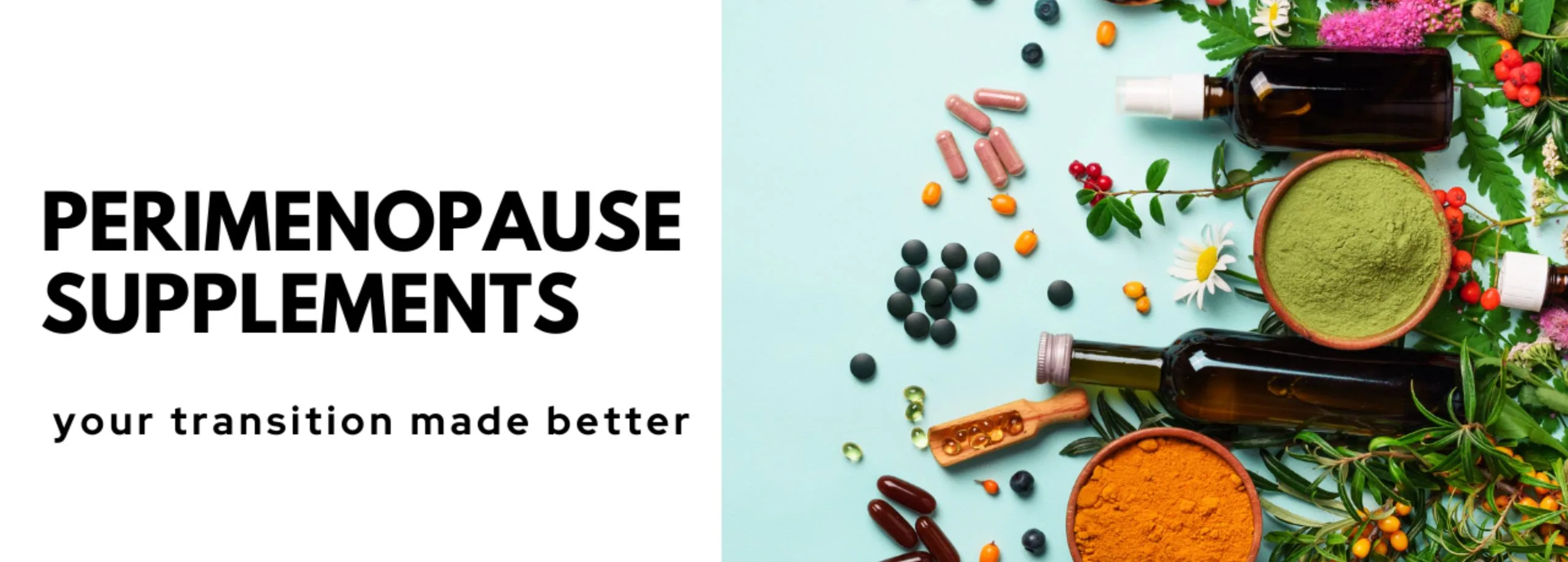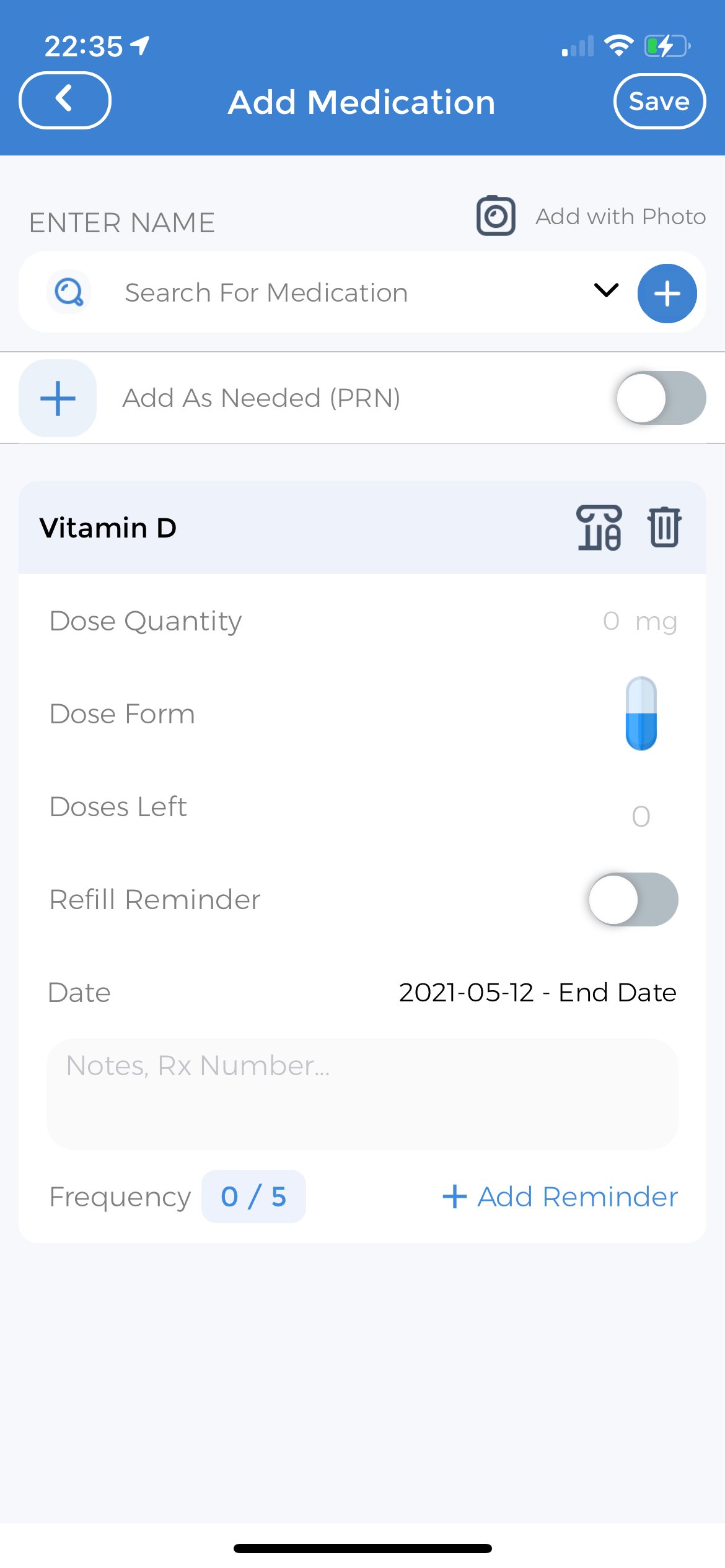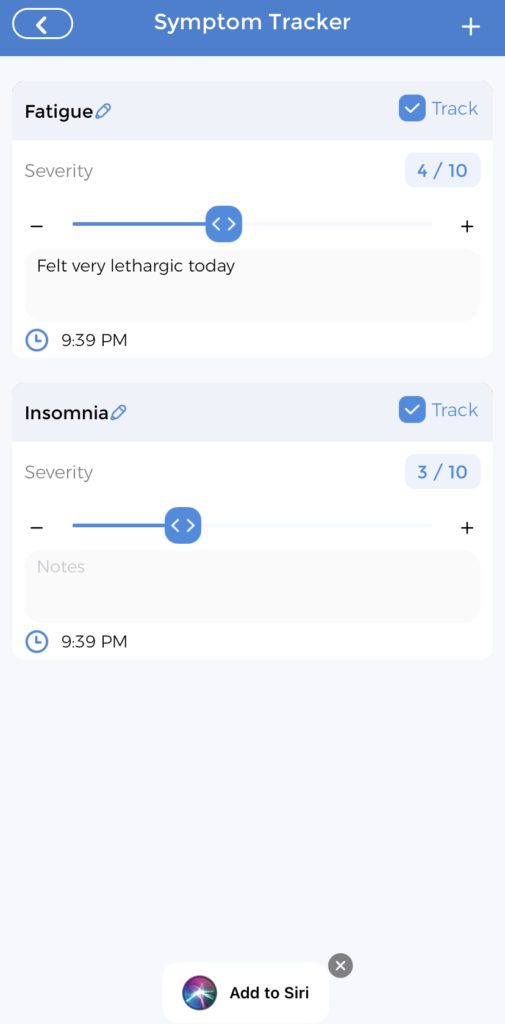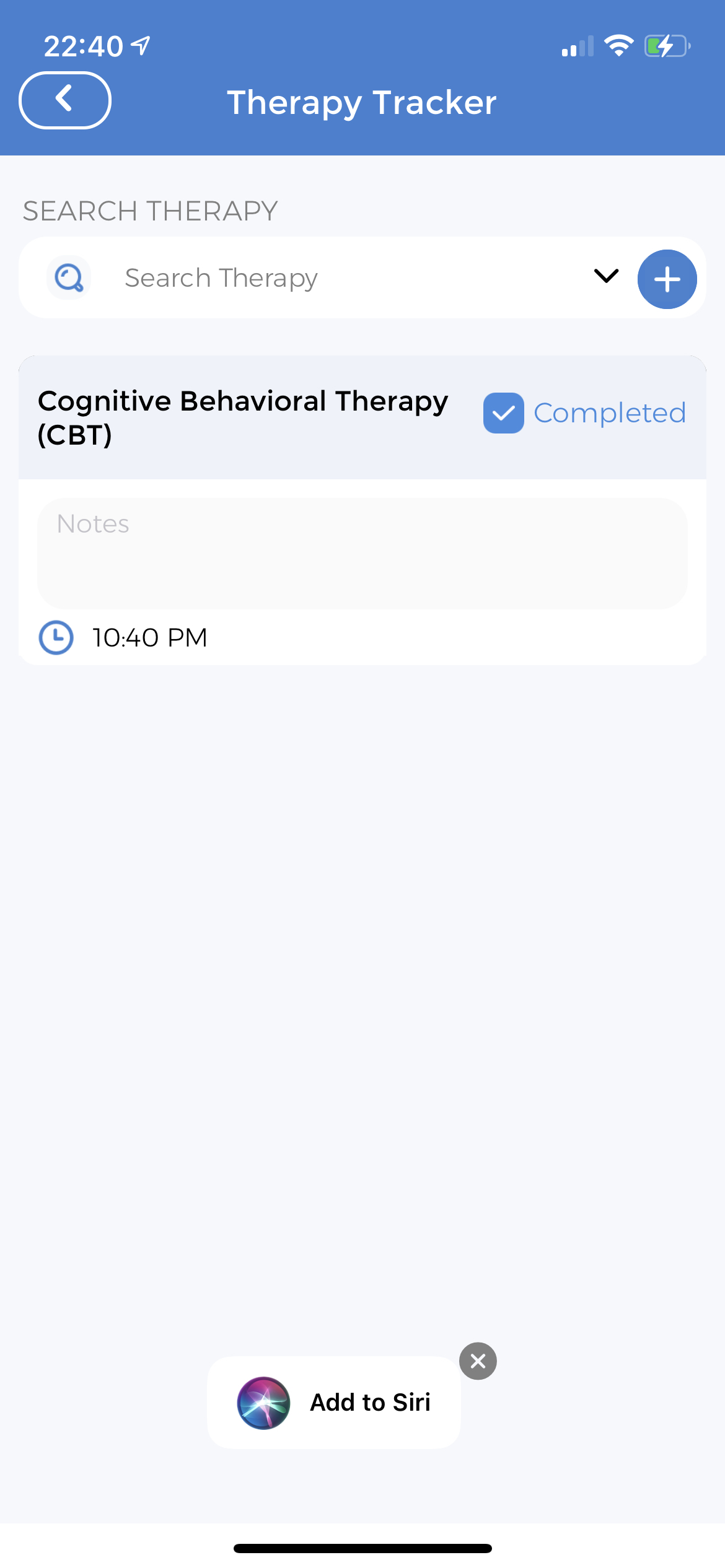
Perimenopause supplements are popular amongst women around their menopausal age. Menopause is an ongoing process that takes place in your 40’s and 50’s. It is not easy to identify, just like many other conditions, though. You can use the CareClinic app to track menopause, and you can learn more about menopause tracking here.
Natural Menopause
Natural menopause marks the end of a woman’s reproductive capability as a result of the aging process. The typical age to experience symptoms and signs is above 45 years, but the studies suggest that the median age for menopause is 51-52 years (R). Despite natural differences in the age of onset, some other causes like surgical intervention, radiotherapy, chemotherapy, etc., precipitates menopause earlier than usual. Natural menopause transitions through three stages, namely perimenopause, menopause, and post-menopause. No matter what, if menopause occurs before the age of 45, it is early menopause, and if it happens at or before 40 years of age, it is known as ‘premature menopause.’
Perimenopause
The fluctuating levels of hormones cause a set of symptoms during this period. It continues until the commencement of menopause. It starts from regular menstruation through irregular menstruation to no menstruation, and due to this change, the name menopausal transition is given. Symptoms occurring during perimenopause would be similar to those of menopause.
Menopause
Menopause follows perimenopause, the period during which you will not menstruate at all. When you have no menstruation for 12 months at a stretch, then it is menopause. (R)
Postmenopause
Postmenopause follows menopause, where the symptoms would start to decrease. But for some, these symptoms might present for more extended periods after the transition.
Perimenopause
Perimenopause happens in stages. There are two stages, namely early perimenopause and late perimenopause. We do not have to dig deeper into the stages since it is not the scope of this article. The changes can be classified into hormonal changes and physical changes, where the latter results from the former.
In menopausal women, a lower female reproductive hormone estrogen increases the risk of precipitating few diseases like osteoporosis. Each woman would experience different sets of symptoms. Occasionally one may not experience any symptoms at all. The symptoms differ between women, so the treatment for symptoms. Medical treatment like hormone replacement therapy is needed to curb more severe symptoms. Women around their menopause widely use non-medical remedies. Meanwhile, lifestyle changes ease your symptoms and prevent the occurrence of some conditions.
To understand how these therapies help, let us briefly read about the symptoms and changes.
Hormonal changes in perimenopause
Estrogen and progesterone are the female reproductive hormones vital to influence your menstruation. Estrogen gets to lower levels, and more often, it fluctuates during your menopause transition. This fluctuation results in altered menstrual cycles and other symptoms. Often you may menstruate even without ovulation.
Physical symptoms in perimenopause
The symptoms of perimenopause will be similar to those of menopause. You can learn more about using a perimenopause tracker app to identify and follow your symptoms.
Hot flashes
The majority of women approaching menopause would experience hot flashes. Hot flashes are instances when an unexpected sensation of heat appears and spreads all over the body. Often sweating, palpitation, facial flushing might accompany hot flashes. If hot flashes make you embarrassed and disrupted or affect your mood, talk to your physician.
Mood swings
Just as the name implies, moods might swing from just low mood to depression during your perimenopause. Subsequently, low mood causes other issues, such as headache, poor sleep, etc. You can come out of a low mood as early as few days or a couple of weeks. However, if you feel so low for a longer time- more than two weeks, it is better to seek medical attention. Usually, depression might make you feel hopeless or unable to focus on your daily activities.
Vaginal Dryness
The control of sex hormones gets lower, and subsequently, vaginal lubrication also gets low. Vaginal dryness results in itchiness or soreness around your vagina, frequent urge to urinate, urinary tract infections, and painful sexual intercourse. Further, they contribute to your low mood, low sex drive, and sleep disturbances.
Lower Sex Drive
Low sex drive means that your feeling of distress from aversion to sex is distressing. In women of perimenopausal age, low libido is a result of hormonal drop. In addition to hormonal changes, low mood, vaginal dryness, and painful intercourse also play a role in the reduced drive for sex.
Moreover, physical changes like reduced breast tissue might affect your self-confidence negatively. Loss of tone around pubic musculature results in prolapse of the vagina, uterus, or urinary bladder.
Sleep Disturbances
Recommended duration for a grown adult is around 7 to 9 hours. Adequate sleep lets you refresh your body and mind and stay energetic. Your mood changes affect your sleep too.
Increased Risk of Bone Loss (Osteoporosis)
Estrogen actively maintains bone density in women. With menopause, estrogen level goes low, and the risk of developing osteoporosis go high. Osteoporosis is an illness of bones where the bones become porous and fragile.
Treatments
Hormone Replacement Therapy (HRT)
Mainstay treatment related to menopause is Hormone Replacement Therapy (HRT) with progesterone, estrogen, or both targeted to seek resort from the symptoms. HRT has its benefits and risks. Your healthcare provider would discuss them with you before starting HRT. You can use HRT only if you do not have any risk factors like a specific type of cancer linked with hormones etc. You can use a perimenopause tracker to follow the effects of the therapy.
Cognitive Behavioral Therapy (CBT)
Cognitive-behavioral therapy has behavioral and cognitive therapy combined. CBT can lessen low mood and anxiety.
Behavioral Change
Changes in your behavior to exercise regularly, eat healthily, and engage with friends and family to overcome these symptoms.
Perimenopause Supplements
If you and your healthcare provider decide to try hormone replacement therapy, you can easily keep tracking the treatment using the CareClinic app. If you are hesitant about this, you can track your symptoms and determine if it is working for you. Even if you are very confident in hormone replacement therapy, it is beneficial for you to follow your menopause symptoms before and after the treatment. Apart from the above therapies, you might prefer to choose some supplements.
If you are using medications or supplements to handle symptoms well, CareClinic has a feature where you can add your medications. This feature also allows you to set reminders to make sure that you are taking your medication consistently. Using a medicine tracker to consume your medication effectively proves to be highly effective in your overall treatment.
Vitamins
Vitamin A
Vitamin A contains a group of retinoids, and retinol is preformed vitamin A. Your body produces vitamin A from beta carotene in fruits and vegetables, which are orange or yellow in color. Preformed vitamin A is rich in animal products and vitamin A supplements. However, an excessive amount of preformed vitamin A may be toxic. Studies raised concerns that high levels of preformed vitamin A can be associated with hip fractures in postmenopausal women. Hence, it is advisable to stick to the recommended daily amount of vitamin A when you take perimenopausal supplements.
Meanwhile, vitamin A derived from beta carotene helps maintain your bone health. All you need to keep in mind is not to exceed the recommended daily limits.
Vitamin B12
Vitamin B12 is necessary for bone health, neurological function, and red blood cell production. Aging and some other disease conditions might diminish the B12 is absorbed in your gut. Since B12 deficiency causes anemia, you would encounter features of anemia such as fatigue or lethargy, loss of appetite, etc. Plus, neurological signs and symptoms like confusion, depression, and dementia are also possible. Vitamin B12 supplements and fortified food could help you take recommended daily amount of Vitamin B12.
Vitamin B6
It helps your body to form a signaling chemical called serotonin. Serotonin transmits brain signals, and fluctuating serotonin levels play a role in mood swings and depression. Vitamin B6 supplements can help you to relieve your symptoms due to low levels of serotonin.
Vitamin D
Without vitamin D, your body will not be able to absorb calcium. Subsequently, deficiency of vitamin D results in an increased risk of fractures due to softened bones. Since your body’s exposure to sunlight is essential to produce Vitamin D, if you stay indoors, then it’s highly likely to get low levels. Apart from exposure to sunlight, your female reproductive hormone estrogen supports keeping your bones strong. In other terms, older women who tend to stay home and go through their perimenopause would face more threats.
Vitamin D is available in fatty fish, beef liver, cheese, egg yolks, etc. If you are not a consumer of these foods, you can opt for supplements. As an adult, your daily requirement is 600IU; it becomes 800IU above the age of 70.
Vitamin E
Vitamin E has antioxidant properties. It helps in improving your stress and makes you feel at ease, and reduces chances of getting depression. It also reduces inflammation in your body. Vitamin E is rich in wheat germ, nuts like almonds, hazelnuts, sunflower seed, and vegetables like spinach, broccoli, avocado, etc. You can also consider vitamin E supplements.
Calcium
As discussed before, less estrogen can precipitate bone loss. Subsequently, you would end up in fractures. Your daily requirement is 1000mg – 1200mg of calcium. Calcium is rich in milk and dairy products like yogurt and broccoli, salmon, tofu, etc., and you can also go for a calcium supplement after discussing it with your physician.
Risks associated with vitamins
Consuming high amounts of vitamins might cause toxicity and some adverse effects. For example, vitamin A lowers your blood pressure, it is not advisable to take them if you are having low blood pressure or on antihypertensive drugs. Similarly, if you consume a lot of alcohol or suffer from liver disease you should not take vitamin A supplements.
Considering this fact, always discuss with your healthcare provider before using vitamins if you use any oral contraceptives, antibiotics, blood thinners or any other medications for chronic use.
Natural perimenopause supplements
Ginseng
Ginseng is popular herbal medicine worldwide and commonly in use in Asian countries for a long time. It is available as ground ginseng root, which you can consume, even in a capsule. Your immune function, mood, sleep quality and duration increase with ginseng root (R).
Researches are yet inconclusive.
Ginseng has its side effects too. Skin rashes, dizziness, headache, diarrhea, and sleep disturbance are common side effects of it. Since ginseng influences blood sugar levels, it is not suggested to those people with diabetes. Ginseng impacts your blood pressure and cholesterol levels too. If you are already on any other drugs, discuss it with your healthcare provider.
Valerian
The supplement produced is an extract from the roots of a flowering plant. It can deal with your mental wellness and sleep. (R) Even though the evidence is less, valerian has some positive effects on insomnia and hot flashes. Hence, if you are already on medications for insomnia or mood-related symptoms, better discuss with your physician about it.
Mild side effects, nausea, vomiting, diarrhea, headaches, and dizziness may be possible with valerian.
Black cohosh
The root of this North American herb is a popular natural medicine for women with menopause symptoms, but with not so much convincing evidence. Black cohosh is also ground to make a dietary supplement.
Soy
Soy contains isoflavones – a substance that is similar to estrogen but less in potency. It can add estrogen to your body to some extent, subsequently easing your symptoms. (R) Soy is now available in various food products such as soybeans, soy milk, tofu, soybean extract, etc. Since soy’s effect is similar to hormone replacement, it reduces many symptoms like hot flashes, night sweats, and vaginal dryness.
Commonly presented side effects include abdominal pain and diarrhea.
Maca
Maca is a vegetable. It is used in traditional medicine to treat various conditions such as infertility, anemia, and menopause symptoms. (R) In specific, as one of the perimenopause supplements, maca might help to resolve low libido and vaginal dryness.
No significant adverse effects have been documented.
Wild yam
Wild yam is one of the popular perimenopause supplements that has hormone-mimicking features. It is available as pills and creams. Since these yams contain substances similar to estrogen and progesterone they serve as alternatives for hormone replacement therapy.
However, the effectiveness of wild yam in relieving perimenopausal symptoms is under debate. It is available as a cream to apply topically or as a pill to take.
Flaxseed
Flaxseed is having properties similar to the female reproductive hormone, estrogen. Hence, it can help with some menopause symptoms by mimicking a female reproductive hormone. They can help in improving hot flashes and building up bone density. Moreover, flax seeds are nutritious and rich in fiber too.
Red Clover
Red clover is another example of a perimenopause supplement. flowering plant with natural plant estrogen-like soy – isoflavones. It reduces the symptoms like hot flashes and bone loss by mimicking bodily hormones.
Mild symptoms of headache and nausea are possible.
Chasteberry
Chasteberry is a medicinal herb indigenous to Asia and the Mediterranean. It has a long history of treating conditions associated with menstrual disorders, infertility, perimenopausal symptoms, and menopause.
Commonly reported side effects are mild, ranging from gastric-related or itchy skin, to headache, etc.
St. John’s Wort
St. John’s wort is a widespread treatment for a mild form of depression. For women around menopause, St. John’s wort can improve mood and mood swings, particularly when combined with black cohosh.
French maritime pine bark extract
Pine bark extract is one of the perimenopause supplements that comprise plant-based hormones and organic chemicals called flavonoids. They help improve menopause symptoms, including hot flashes.
Dong Quai
The root of the dong quai plant is in traditional Chinese medicine. Even though it is popular as one of the perimenopause supplements, the evidence is not conclusive.
Dong quai may increase your skin’s sensitivity to the sun. It has some blood thinning capability; hence, discuss it with your physician if you tend to bleed or use any blood thinners already. Also, dong Quai might be a cancer-causing agent when taken long-term.
Evening primrose oil (EPO)
The evening primrose oil is extracted from seeds of evening primrose. It is used to get relief from hot flashes and bone softening. Side effects are mild and include nausea and abdominal pain.
EPO has interactions with other drugs and other perimenopause supplements discussed above; therefore, you should discuss it with your physician.
Things to remember about perimenopause supplements
- Always talk to your doctor or healthcare provider about the supplements before you start using them.
- All supplements have their side effects, ranging from simple itchiness to severe allergic reactions.
- Supplements might interact with other medications or supplements you take, either positively or negatively.
CareClinic App as a Perimenopause Supplements Tracker
CareClinic is a one-stop health app, that provides several useful features to help you maintain a health record. Create a Self-Care Action Plan and add medications, supplements, diet, physical activities, and therapies you receive. Set your healthcare team who manages your health and add your physician, registered nurse, and family members.
Diary Entry
The diary entry feature lets you make entries about your daily life. Use the diary entry feature of the app as a part of the perimenopause tracker to track the day-to-day symptoms you experience and the perimenopause supplements you take. It is helpful to have an overall idea of how pain intervenes in your activities of daily life.
Therapy
Keep a record of any therapies you follow to get rid of the symptoms you experience. The therapy feature of the CareClinic app is another part of the perimenopause tracker.
Symptom Tracker
The symptom tracker functions as a part of the perimenopause tracker and lets you add symptoms you are experiencing. You can track the symptoms to understand the worsening of your symptoms or the progress of your treatment with perimenopause supplements. If you start tracking your symptoms before seeking medical attention, you can compare how well the therapy relieves you from symptoms after visiting the doctor’s office.
Medication & Supplements
Never miss a pill anymore with the medication reminder. Add your perimenopause supplements to the medication tracker and set a reminder. The pill tracker helps you track your supplements and medications.
Nutrition
CareClinic offers a nutrition tracker, which helps you maintain your diet log. Plus, you can identify your food habit to choose appropriate perimenopause supplements. With a specific diet to improve your food habit, you can follow your diet accordingly to lead a healthy life.
Activity
Use this feature to track any physical activity. Your activity tracker helps you identify any actions that worsen or relieves your symptoms.
Reports
Reports are a great feature offered by CareClinic, can provide a lot of perception into your lifestyle change. It considers your logs in diary, nutrition, activities, symptoms, etc., and subsequently generates reports that show the association between those entries. As a perimenopause tracker, this association would be helpful for treatment.
In conclusion, you can record perimenopause symptoms and supplements and follow up on your transition with the CareClinic app itself.




